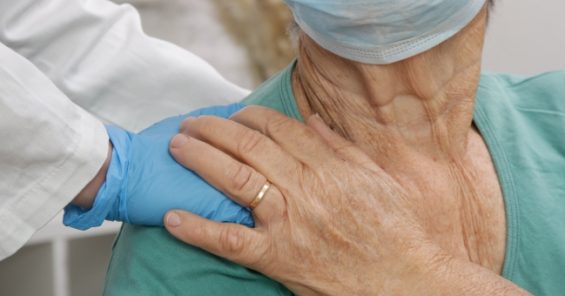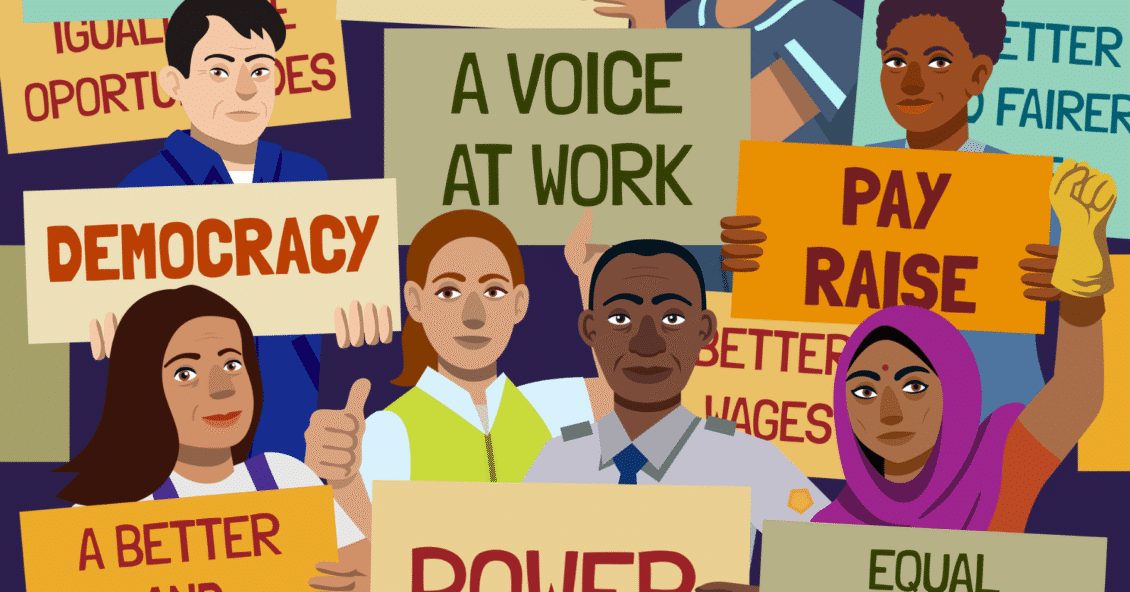UNI Global Union, which represents 2 million care workers worldwide, today said the COVID-19 pandemic has made nursing homes some of the most hazardous—and even deadly—worksites in the world.
In a new report released today—The Most Dangerous Job: The Impact of COVID-19 on Long-Term Care Workers in the US, UK, Canada, Ireland, and Australia—UNI reveals how similar issues across the long-term care sector in five countries contributed to COVID-19 contagion and deaths not just for residents but also the vulnerable workers in the industry. In some countries, the job can be as dangerous as mining, timber, and police work.
As we approach the one-year anniversary of the first of the global lockdowns, the situation in nursing homes globally remains critical, and while much of the world’s attention has fallen on residents, the report shows the high costs workers have paid. In the United States alone, nearly 500,000 long-term care workers have been infected. From mid-December 2020 to mid-January 2021, nearly four of these U.S. care workers died a day.
The report makes clear that the business model for nursing homes in all the countries examined is responsible for much of the suffering and death: workers in the long-term care sector have historically faced difficult and unsafe conditions, earning low wages with few benefits, and often without the protections of a union.
In 2020, essential long-term care workers found themselves on the front lines of the COVID-19 pandemic, caring for the elderly and aiding the most vulnerable, and becoming vulnerable themselves. Hundreds of thousands of workers contracted COVID-19 in the countries studied and so far, at least 1,385 died in the US, 469 in the UK and 25 in Canada.
The physical and emotional toll on workers, who have seen their residents and coworkers get sick and know they could be next, is immense.
“We are already facing tragedy of an unspeakable scale, but I fear that much more loss is in store,” said Christy Hoffman, General Secretary of UNI Global Union. “We do not know the impact that COVID will have on workers over time, and unless the working conditions that helped the virus spread like wildfire through care homes—the lack of PPE, low wages, no paid sick days, no union representation—are fixed, serious problems will persist after vaccinations and after this pandemic.”
UNI is calling for the following urgent changes to save lives in the industry:
- COVID-19 should be recognized as an occupational disease for all long-term care workers.
- All nations should focus on urgently improving the working conditions and pay of long-term care workers. To help stop the spread of COVID-19, countries should minimize facilities’ reliance on temporary workers and workers that move among multiple care facilities by giving people full-time jobs with decent pay.
- Higher staff-to-resident ratios to safeguard the health of both workers and residents.
- Increased investment in the long-term care sector that is tied to both worker and resident outcomes, providing incentives for investors, employers, and governments to follow the strictest safety protocols and best practices.
- Robust tracking systems should be developed and implemented to track coronavirus infections, hospitalizations, and deaths among workers on a national level. Ideally, the data should be broadly comparable internationally.
- Infectious disease training should be provided to all long-term care workers on an annual basis.
- Health and safety structures, including worker or joint committees, should be used to address COVID-19 risks and to impose stronger measures that include infectious disease protocols, access to PPE and vaccines, among others. If they do not currently exist at a worksite, they should be created.
- Most importantly, workers must have a voice in decision-making in the workplace through unions and collective bargaining. As part of the move toward empowering workers, each nursing home needs a worker health and safety committee and democratically elected worker safety representatives.
The ongoing global public health crisis has exacerbated the injustices care workers have endured for decades, and now it is costing them their health and their lives. UNI supports its member unions who are pushing for changes that will protect long term care workers and make fundamental changes in the sector.
“COVID-19 has brought to the fore many of the core issues that workers in the long-term care industry have been fighting to improve for years,” said Adrian Durtschi, Head of UNI’s Care sector. “When workers have a voice on the job through their union and collective bargaining, they can raise the standard of care and help keep everyone in their facility healthier and safer. These changes will save lives during the pandemic and in the years to come.”


